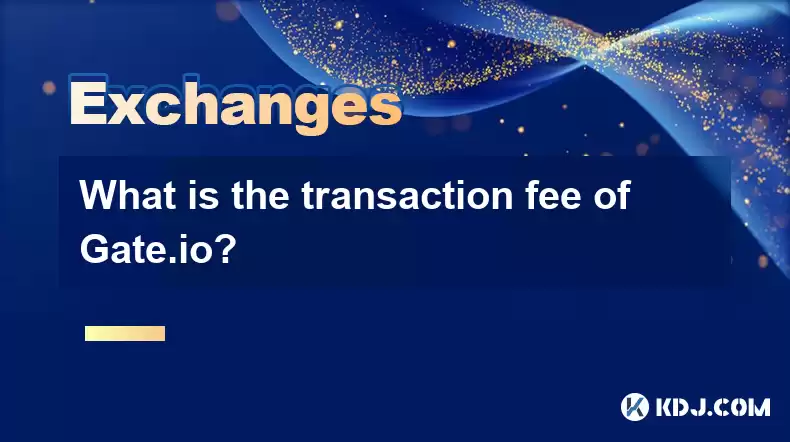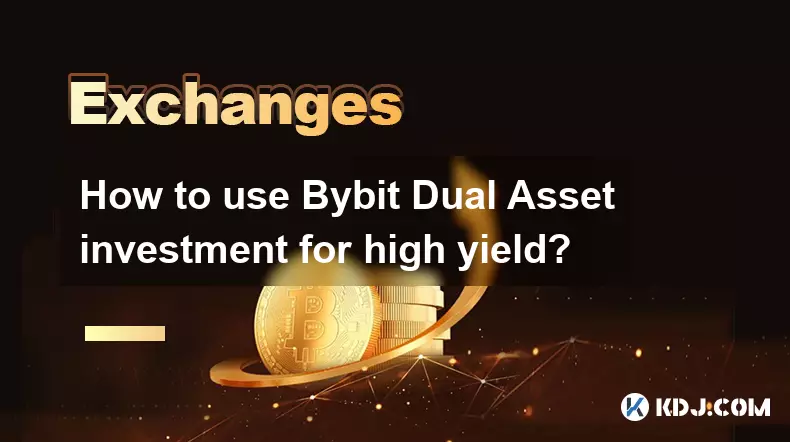-
 bitcoin
bitcoin $87959.907984 USD
1.34% -
 ethereum
ethereum $2920.497338 USD
3.04% -
 tether
tether $0.999775 USD
0.00% -
 xrp
xrp $2.237324 USD
8.12% -
 bnb
bnb $860.243768 USD
0.90% -
 solana
solana $138.089498 USD
5.43% -
 usd-coin
usd-coin $0.999807 USD
0.01% -
 tron
tron $0.272801 USD
-1.53% -
 dogecoin
dogecoin $0.150904 USD
2.96% -
 cardano
cardano $0.421635 USD
1.97% -
 hyperliquid
hyperliquid $32.152445 USD
2.23% -
 bitcoin-cash
bitcoin-cash $533.301069 USD
-1.94% -
 chainlink
chainlink $12.953417 USD
2.68% -
 unus-sed-leo
unus-sed-leo $9.535951 USD
0.73% -
 zcash
zcash $521.483386 USD
-2.87%
What is the transaction fee of Gate.io?
Gate.io's transaction fees are dynamic, varying by cryptocurrency, network congestion, and trading volume. A maker-taker system rewards liquidity providers with lower fees, and VIP levels offer further discounts for high-volume traders. Check the platform for current fees before trading.
Mar 15, 2025 at 07:55 am

- Gate.io's transaction fees are dynamic and depend on several factors, including the cryptocurrency being traded, network congestion, and the chosen trading pair.
- Fees are generally competitive compared to other centralized exchanges.
- Gate.io offers a maker-taker fee structure, rewarding users who add liquidity to the order book.
- The platform also offers VIP levels with discounted fees for high-volume traders.
- Understanding Gate.io's fee structure requires careful consideration of various parameters and your trading volume.
Gate.io, a prominent cryptocurrency exchange, employs a dynamic fee structure. This means the transaction fees aren't fixed but fluctuate based on several key elements. These factors contribute to the complexity of providing a single definitive answer to the question of Gate.io's transaction fees. The primary determinant is the specific cryptocurrency pair involved in the trade. Different cryptocurrencies have different network fees and processing costs, directly impacting the overall transaction fee.
Network congestion plays a crucial role. When the network is heavily congested, transaction fees generally increase to incentivize faster processing. This is especially relevant for cryptocurrencies with high transaction volumes. Think of it like rush hour traffic – higher demand leads to higher costs. Therefore, the time of day or week can also influence the fees you encounter.
Gate.io uses a maker-taker fee model. Maker fees apply to limit orders that add liquidity to the order book. These are generally lower than taker fees. Taker fees are charged for market orders that remove liquidity from the order book. This system encourages users to contribute to market liquidity. The exact maker and taker fees vary depending on the trading pair and your trading volume.
Gate.io's fee structure also incorporates a VIP system. High-volume traders are rewarded with discounted fees as they progress through the VIP tiers. This incentivizes increased trading activity on the platform and benefits both the exchange and its active users. The VIP levels are based on trading volume over a specific period, typically 30 days.
The specific fee percentage can be easily found on Gate.io's website. You can access the fee schedule directly through their platform. Before placing any trades, it's recommended to check the current fees for your desired cryptocurrency pair. This ensures transparency and allows you to accurately budget for your transactions. Gate.io provides tools to calculate the estimated fees before confirming any trade.
Understanding Gate.io's Fee Structure in Detail:- Cryptocurrency Pair: The fee structure varies significantly depending on the specific cryptocurrencies involved in the trade. Trading Bitcoin (BTC) against Tether (USDT) will likely have a different fee than trading a less liquid altcoin pair.
- Maker-Taker Fees: As mentioned, Gate.io operates on a maker-taker system. Maker fees are generally lower than taker fees, offering incentives for users contributing to market liquidity. The precise percentages for both are specified on the platform for each pair.
- Trading Volume: Your trading volume directly impacts your fees. Higher trading volumes usually qualify you for lower fees through the VIP program. Gate.io clearly outlines the tiers and corresponding fee reductions.
- Network Fees: These fees are independent of Gate.io and are inherent to the specific cryptocurrency blockchain. These fees cover the cost of processing transactions on the blockchain and are passed on to the user.
- Check the Trading Pair Page: Before initiating a trade, navigate to the specific trading pair you intend to use. The current maker and taker fees will be clearly displayed on that page.
- Use the Fee Calculator: Gate.io might offer a built-in fee calculator. This tool will allow you to input your trade details and estimate the total fees before confirming the transaction.
- Refer to the Official Fee Schedule: Gate.io's website usually hosts an official fee schedule, which details the various fee structures for different trading pairs and VIP levels. This serves as a comprehensive resource.
A: Gate.io's fees are generally competitive with other major centralized exchanges. However, direct comparison requires checking the current fees on multiple platforms for the same cryptocurrency pairs. Factors like trading volume and VIP status also heavily influence the final fee.
Q: How often do Gate.io's fees change?A: The fees can fluctuate frequently based on network congestion and market conditions. It’s advisable to check the current fees immediately before placing a trade to ensure accuracy.
Q: What is the minimum transaction fee on Gate.io?A: There's no fixed minimum transaction fee. The minimum fee depends on the trading pair, the network fee, and the amount traded. A very small trade might incur minimal fees, but the combination of taker fees and network fees will always be present.
Q: How can I reduce my transaction fees on Gate.io?A: The most effective ways to reduce fees are to increase your trading volume to achieve a higher VIP level and to use limit orders (maker orders) instead of market orders (taker orders) whenever possible.
Q: Does Gate.io charge withdrawal fees?A: Yes, Gate.io charges withdrawal fees. The amount varies depending on the cryptocurrency being withdrawn. These fees are separate from trading fees and are usually displayed clearly during the withdrawal process. These fees cover the network cost of sending the cryptocurrency.
Disclaimer:info@kdj.com
The information provided is not trading advice. kdj.com does not assume any responsibility for any investments made based on the information provided in this article. Cryptocurrencies are highly volatile and it is highly recommended that you invest with caution after thorough research!
If you believe that the content used on this website infringes your copyright, please contact us immediately (info@kdj.com) and we will delete it promptly.
- GPT-5.3 Codex-Spark Ignites AI Coding with Cerebras Hardware, Achieving Unprecedented Speeds
- 2026-02-13 09:35:01
- Blooming Forever: Florida Roses, Valentine's Day, and the Enduring Appeal of Long-Lasting Plants
- 2026-02-13 09:50:02
- Crypto PAC Fairshake Targets Congressman Al Green in High-Stakes Primary, Fueling Political Debate
- 2026-02-13 09:50:02
- Bitcoin Traders Secure Partial Profits as Market Hovers Near $68K Amidst Range Dynamics
- 2026-02-13 07:40:02
- Crypto ETFs Gain Lasting Appeal as Investment Landscape Evolves
- 2026-02-13 06:50:01
- Enlivex Therapeutics' RAIN Token Makes a Big Splash on Kraken Exchange, Cementing Digital Strategy
- 2026-02-13 07:30:02
Related knowledge

How to use Bybit VIP program to reduce trading fees?
Feb 11,2026 at 07:19am
Understanding Bybit VIP Program Structure1. The Bybit VIP program categorizes users into tiers based on their 30-day average net asset value and tradi...

How to buy JasmyCoin (JASMY) on Bybit?
Feb 09,2026 at 03:40am
Creating a Bybit Account1. Navigate to the official Bybit website and click the 'Sign Up' button located in the top-right corner. 2. Enter a valid ema...

How to contact Bybit customer support for urgent help?
Feb 05,2026 at 11:40pm
Accessing Bybit Support via Live Chat1. Log in to your Bybit account using the official website or mobile application. 2. Navigate to the Help Center ...

How to buy Injective (INJ) on Bybit in 2026?
Feb 09,2026 at 05:39pm
Account Registration and Verification Process1. Navigate to the official Bybit website and click the “Sign Up” button located in the top-right corner....

How to use Bybit Dual Asset investment for high yield?
Feb 06,2026 at 12:20am
Understanding Bybit Dual Asset Investment Mechanics1. Dual Asset Investment is a structured product offered by Bybit that combines a stablecoin deposi...

How to buy Celestia (TIA) on Bybit exchange?
Feb 10,2026 at 09:39pm
Creating a Bybit Account1. Visit the official Bybit website and click the “Sign Up” button located at the top right corner of the homepage. Enter a va...

How to use Bybit VIP program to reduce trading fees?
Feb 11,2026 at 07:19am
Understanding Bybit VIP Program Structure1. The Bybit VIP program categorizes users into tiers based on their 30-day average net asset value and tradi...

How to buy JasmyCoin (JASMY) on Bybit?
Feb 09,2026 at 03:40am
Creating a Bybit Account1. Navigate to the official Bybit website and click the 'Sign Up' button located in the top-right corner. 2. Enter a valid ema...

How to contact Bybit customer support for urgent help?
Feb 05,2026 at 11:40pm
Accessing Bybit Support via Live Chat1. Log in to your Bybit account using the official website or mobile application. 2. Navigate to the Help Center ...

How to buy Injective (INJ) on Bybit in 2026?
Feb 09,2026 at 05:39pm
Account Registration and Verification Process1. Navigate to the official Bybit website and click the “Sign Up” button located in the top-right corner....

How to use Bybit Dual Asset investment for high yield?
Feb 06,2026 at 12:20am
Understanding Bybit Dual Asset Investment Mechanics1. Dual Asset Investment is a structured product offered by Bybit that combines a stablecoin deposi...

How to buy Celestia (TIA) on Bybit exchange?
Feb 10,2026 at 09:39pm
Creating a Bybit Account1. Visit the official Bybit website and click the “Sign Up” button located at the top right corner of the homepage. Enter a va...
See all articles










































































